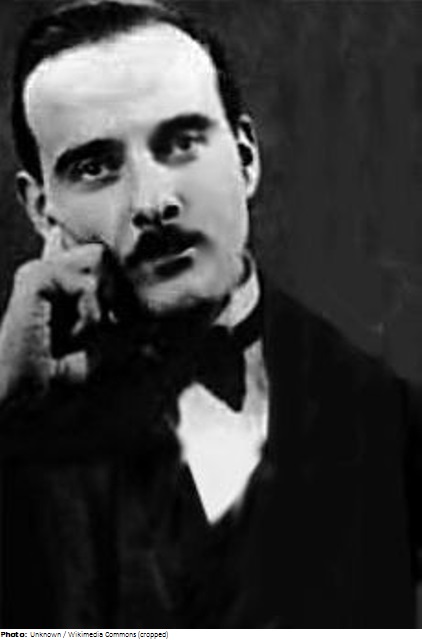
| Roles | Competed in Olympic Games |
|---|---|
| Sex | Male |
| Full name | Adolfo Lauro•De Bosis |
| Used name | Lauro•De Bosis |
| Other names | Paulo maiora canamus |
| Born | 9 December 1901 in Roma, Roma (ITA) |
| Died | 3 October 1931 (aged 29 years 9 months 25 days) in Rio nell'Elba, Rio, Livorno (ITA) |
| NOC |  Italy Italy |
| Medals | OG |
| Gold | 0 |
| Silver | 1 |
| Bronze | 0 |
| Total | 1 |
Lauro de Bosis was a philosopher and philologist who also translated ancient texts into Italian. His family came from Ancona. His father Adolfo was an industrialist but also a poet and his mother was a writer and poetry lover of American descent. One of his sisters was a well-known scientist in Arabic and Islamic studies and one of his brothers a highly decorated pilot who was killed in World War I. He started to write verses by the age of seven, and graduated in chemistry in Roma. Between 1924 and 1926 he spent long periods in the United States, translating English literature, giving lectures and teaching Italian at Harvard.
As a liberal conservative and monarchist, he was initially not strictly opposed to the Italian Fascists. In 1927, however, already disillusioned, he wrote his verse-drama Icaro (published in 1930). In 1928 he won a silver medal in the art competitions of the Olympic Games for this work. Icaro is a lyrical drama composed in 1927 using an Italian meter of 11 syllables. It is dedicated to his brother, who also died in a plane crash. Here, Icarus is a poet sacrificing his life for freedom, which was denied by the tyrant Minos. The work, inspired by a sonnet on this theme by French 16th century poet Philippe Desportes, was translated into English by American actress and dramatist Ruth Draper, who was in a relationship with De Bosis. At the Olympics, the work submitted under the Latin motto (pseudonym) Paulo maiora canamus (English: let’s sing of something superior). This quote comes from the IVth Eclogue of the Roman poet Virgil.
De Bosis continued to translate works by Americans, including John Erskine and Thornton Wilder, who later dedicated his novel The Ides of March to him. He became a member of a clandestine group trying to form a conservative alliance against Fascism. He was, however, reluctant to include leftist anti-Fascists. The opposition group was busted by the political police, during one of De Bosis’ stays in the United States. Subsequently, he lived in Switzerland, Paris (where he started to take flying lessons), and London, where he bought a plane. Taking off in Corsica, he planned to drop anti-Fascist leaflets over Roma. After an accident, however, the plan was revealed. Under an English pseudonym he bought another plane from Germany. In early October 1931, he took off near Marseille and dropped 400,000 manifestos over Roma. On his way back, followed by Italian military planes, he probably ran out of fuel and crashed. Neither the plane nor the body of the pilot were ever found. A comparison with the Greek figure Ikarus or the fate of Antoine de Saint-Exupéry is intriguing. His political testament Storia della mia morte, part of which was also printed on the leaflets, was eventually published in 1945.
| Games | Discipline (Sport) / Event | NOC / Team | Pos | Medal | As | |
|---|---|---|---|---|---|---|
| 1928 Summer Olympics | Art Competitions |  ITA ITA |
Paulo maiora canamus | |||
| Literature, Dramatic Works, Open (Olympic) | 2 | Silver |